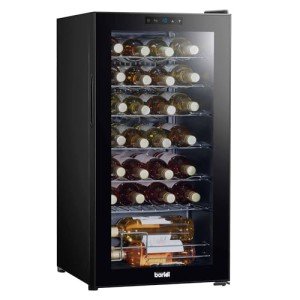The Comprehensive Guide to Refrigerators in the UK
Fridges are an important device in every home, serving an important function in food conservation and safety. The UK market provides a varied variety of fridge types, sizes, features, and brands. Ellis Mailey aims to supply an in-depth understanding of refrigerators offered in the UK, including their functions, energy efficiency, and factors to think about when making a purchase.
Types of Refrigerators Available in the UK
When trying to find a refrigerator, it is necessary to understand the different types available. Each type includes its own set of functions and functions, accommodating various requirements and choices. The most common types of refrigerators found in the UK consist of:
1. Leading Freezer Refrigerators
- Description: The conventional style, including the freezer compartment on top.
- Pros: More economical, large, simple access to fresh food.
- Cons: Limited freezer space, the top may be less convenient for bulk items.
2. Bottom Freezer Refrigerators
- Description: Freezer lies at the bottom, permitting simpler access to fresh food.
- Pros: Greater convenience, much better presence of fresh items.
- Cons: Usually more pricey, some may battle with large frozen products.
3. Side-by-Side Refrigerators
- Description: Features two vertical compartments, one for the fridge and one for the freezer.
- Pros: Ample storage space, simple to access both frozen and fresh foods.
- Cons: Wider footprint, they may not fit in smaller sized cooking areas.
4. French Door Refrigerators
- Description: Combines features of bottom freezers and side-by-sides, with 2 doors for the fridge on top.
- Pros: Stylish style, roomy, and frequently consists of advanced functions.
- Cons: Higher rate point, aligns poorly with smaller sized kitchen layouts.
5. Compact Refrigerators
- Description: Smaller designs developed for minimal areas.
- Pros: Ideal for studio apartments or workplaces, energy-efficient.
- Cons: Limited storage capability, may lack functions.
6. Integrated Refrigerators
- Description: Designed to mix seamlessly with kitchen area cabinetry.
- Pros: Custom fit, aesthetic appeal, increases home value.
- Cons: Higher cost, may offer less flexibility in positioning.
7. Smart Refrigerators
- Description: Equipped with Wi-Fi and wise innovation features.
- Pros: Advanced includes like touch screens and internal cams.
- Cons: Expensive, more complex to repair.
| Refrigerator Type | Availability | Average Price Range | Energy Efficiency |
|---|---|---|---|
| Top Freezer | Moderate | ₤ 300 - ₤ 600 | Average |
| Bottom Freezer | High | ₤ 400 - ₤ 800 | Above Average |
| Side-by-Side | Easy | ₤ 800 - ₤ 1500 | Differs |
| French Door | High | ₤ 800 - ₤ 2000 | High |
| Compact | Restricted | ₤ 200 - ₤ 500 | Average |
| Integrated | Custom | ₤ 1000 - ₤ 2500 | High |
| Smart | Variable | ₤ 1200+ | High |
Key Features to Consider
- Energy Efficiency: Look for designs that are energy-efficient. In the UK, appliances are ranked from A (most efficient) to G (least effective). An A+ ranking and above can lead to substantial energy cost savings.
- Capability: Choose a fridge with adequate capability for your family. A basic guideline is 100-200 liters per person.
- Noise Level: Consider designs that operate silently, especially if the cooking area is near living areas.
- Cooling Technology: Features like frost-free technology are worth the investment, as they decrease upkeep.
- Adjustable Shelves: Having adjustable racks improves the versatility to store bigger products.
- Temperature Control: Check for easy-to-use temperature level controls and zones for various kinds of food.
- Design: Choose the style and color that matches your kitchen aesthetic, whether you prefer a contemporary stainless-steel look or a traditional retro finish.
Purchasing Tips
- Determine Your Needs: Consider your cooking practices, household size, and kitchen area area.
- Set a Budget: Refrigerators been available in numerous rate varieties. Develop a budget plan before you start shopping.
- Research Energy Ratings: Invest in energy-efficient models to conserve on utility expenses.
- Read Reviews: User experiences can offer insights into dependability and efficiency.
- Compare Brands: Some brand names are understood for their toughness while others might provide more innovative features.
Frequently Asked Questions (FAQs)
1. How long do refrigerators normally last?
- Fridges generally last in between 10 to 20 years, depending on the brand name and how well they are maintained.
2. Are there any upkeep tips for extending the life of a refrigerator?
- Routinely clean the coils, check the door seals, and regularly defrost if required to preserve ideal performance.
3. What is the best size refrigerator for a household of four?
- For a household of 4, a refrigerator with a capacity of around 400-600 liters is typically adequate.
4. Do I need to fret about energy usage when purchasing a refrigerator?
- Yes, energy usage is essential. Search for systems with high energy efficiency rankings to decrease regular monthly costs.
5. Should I pick a fridge with a water and ice dispenser?
- This feature can be hassle-free, especially for households. However, it might require more maintenance than standard designs.
Buying a refrigerator is a considerable choice for any family in the UK. With different types offered, each with its special features and advantages, it is crucial to evaluate specific needs before deciding. By thinking about elements such as energy efficiency, capacity, and design looks, customers can pick a fridge that aligns well with their lifestyle, ultimately enhancing their kitchen area experience while securing food quality and freshness.

